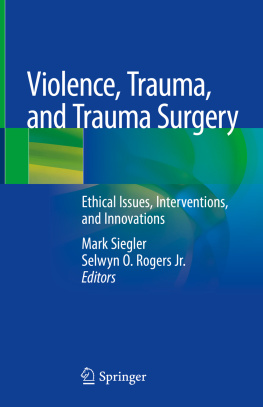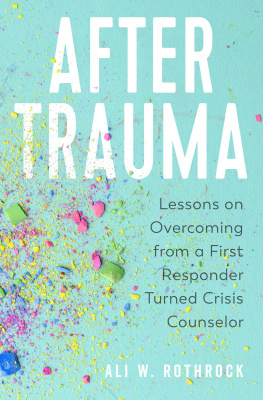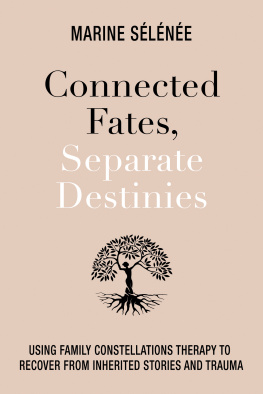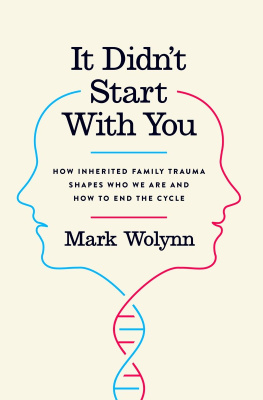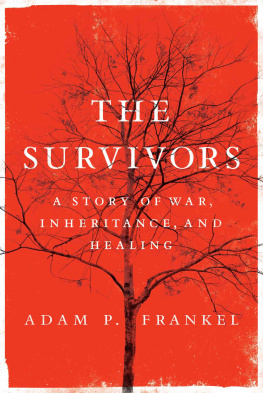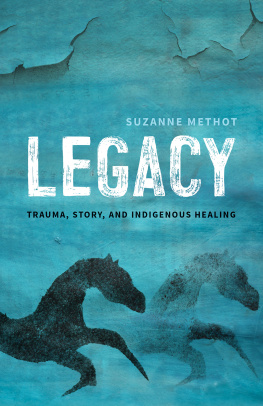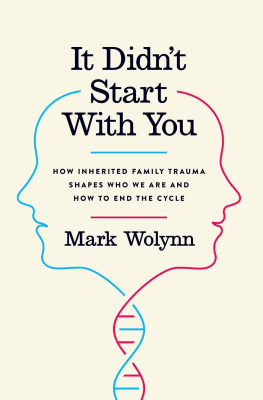THE INHERITORS
Copyright Gita Arian Baack, Ph.D. 2016
All rights reserved. No part of this publication may be reproduced, distributed, or transmitted in any form or by any means, including photocopying, recording, digital scanning, or other electronic or mechanical methods, without the prior written permission of the publisher, except in the case of brief quotations embodied in critical reviews and certain other noncommercial uses permitted by copyright law. For permission requests, please address She Writes Press.
Published 2017
Printed in the United States of America
PRINT ISBN: 978-1-63152-222-2
E-ISBN: 978-1-63152-223-9
Library of Congress Control Number: 2017934118
Trans-Generational TraumaGenocideHolocaustMemoryResiliencePersonal NarrativePsychologySelf Help
For information, address:
She Writes Press
1563 Solano Ave #546
Berkeley, CA 94707
Cover and interior design by Tabitha Lahr
She Writes Press is a division of SparkPoint Studio, LLC.
Disclaimer: This book is set against a backdrop of complex world histories that have been written about in countless books. This book is not intended to build on, or re-create that wealth of knowledge. The utmost effort and attention has been given to ensure respectful treatment for the gravity of this subject matter.
This book is not intended to replace any therapy that a person may require.
DEDICATION
This book is dedicated to the memory of my half-brother Henush, my half-sister Helena, and their mother Hela, my fathers first wife. They were murdered under the Nazi regime. There is no information or documentation about them.
Henush Arian, four years old when he was murdered

Helena Arian, three years old when she was murdered
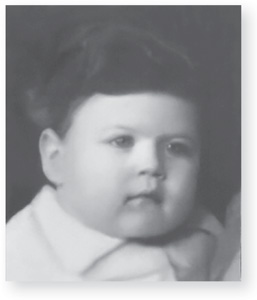
Hela Arian, with her beloved children
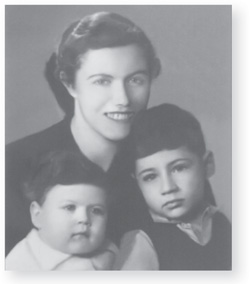
This book is in honor of my indomitable mother, Lea (Laika) Alperowicz-Arian and my devoted father, Sam (Zygmunt, Zalman) Arian. They learned to speak six languages, played cards with zest and taught me to laugh and cry for no reason.
My brother, Morris, and me, my father and mother in Israel

This book salutes my Inheritor cohort of children who were born to parents who survived the Holocaust. I would like to say this to our generation. We are now adults and living all over the world; we may not know each other but we are intimately connected. We were given life and an obligation to bear witness. We were given a task to remind the world of the Holocaust in order to prevent hatred anywhere in the world. That is not to say that we dont have the right to live our own lives, free from the horrors of our past.
A salute also goes to Inheritors of trauma from around the globe who have inherited a burdensome legacy and have accepted to undertake the difficult soul work required to explore their story.
I am interested in researching the unfinished business in my soul and the unsaid weight of history that waits to be said.
Robert Romanyshyn,
The Wounded Researcher
CONTENTS
FOREWORD
T he Inheritors: Moving Forward from Generational Trauma is a seminal work by Dr. Gita Arian Baack, and should be read by everyone who has encountered some form of trauma in his or her life or who has inherited trauma. Dr. Baacks provocative book suggests that we inherit traumas from our families and even from previous generations, and further, that these inherited traumas influence and impact our present life as well as future generations. She counsels that only after we have understood these traumas can we access our feelings of loss, grief and outrage and go on to live our lives fully.
Dr. Baack leads us on a journey over several continents and into unknown recesses of our minds as she urges us to seek out the answers to our inherited traumas that have impacted us to greater degrees than we realize. She shows us the possibility of great strength and resilience in our stories along with sadness and pain through her personal anecdotes, poetry and excerpts of dialogues with the Inheritor generations after the Holocaust.
As an advocate for positive change, particularly regarding racism in our communities, I found the constant theme that flows from the first to the last page regarding the importance of dialogue between groups and within groups, provided me with new insights on how sharing our stories can help build understanding and solutions for current and future generations. In America, we are faced with many provocative issues that have caused immense divisiveness between black people and white people. The US election of 2016 demonstrates that racism is very much alive. However, we have not found an effective way to deal with racism because the full impacts have not been surfaced or adequately discussed, a common theme in The Inheritors. In the same vein we havent explored our inherited history fully, for example, what were the impacts resulting from the disconnection from the African culture and communal way of life? What were the impacts on our social and institutional systems and on individuals resulting from 300 years of slavery?
Dr. Baack brings us an important message as she urges us to know and embrace our past in all its fullness for therein lies our hope for the future. With this understanding, Inheritors everywhere must engage in conversations that will help us collectively work with others to provide future generations with a better world for all of humanity.
Herbert Merrill II, Doctorate of Education (D.Ed.); CEO, Merrill Consulting Associates, LLC; Board of Directors, Mental Health Colorado; American Counselling Association, American Psychological Association.
1
AN INVITATION TO MY READER

We are each of us angels with only one wing. And we can only fly embracing each other.
Luciano De Crescenzo,
Italian writer, film director, and actor
I nheritors of trauma can be defined as the generations of people who, consciously or unconsciously, have thoughts and feelings about devastating events that happened when they were very young or before they were born, or that may even go back to earlier generations.
While each of us, as an Inheritor, has followed our own unique path and has inherited our own unique stories, Inheritors of trauma share many similarities. How do I know? As often happens when one goes on a journey of self-discovery, I have met people from various cultures and countries whose description of their journey is similar to mine. I realized we have a universal story of inherited trauma, as I call it, and I call our cohort Inheritors or Inheritors of trauma. Ours is a kind of second-hand story, and it pervades our lives like deadly second-hand smoke. And like second-hand smoke, it has been invisible, often unacknowledged, but it has grievously betrayed our ability to be whole.
Next page

